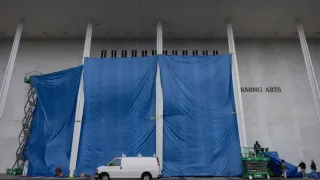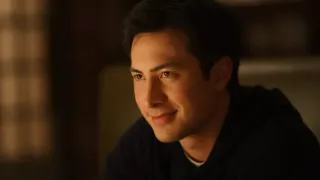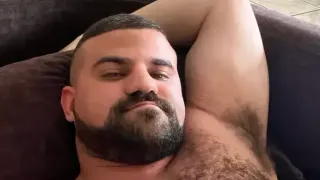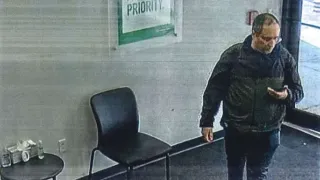August 20, 2016
The Post-Orlando Gun Debate in the LGBT Community
Jill Gleeson READ TIME: 7 MIN.
Allie Barnhart, like so many raised in rural Western Pennsylvania, grew up around guns.
Most of the men in her family were former military. Both of her parents taught her to shoot before she hit puberty, and Barnhart's Uncle George took her hunting at 13, schooling her in the serious business of killing living things for food. (In the Appalachians of Pennsylvania, groceries are still routinely supplemented with whichever wild game is currently in season.) That was the same year she got her very first firearm: A Winchester lever-action .22 she received for her birthday. "I still have that rifle," Barnhart says. "It's one of my favorites." At 21, the minimum legal age to purchase a handgun in Pennsylvania, she bought a Ruger Blackhawk .357 Magnum.
Although she had long possessed a Pennsylvania License to Carry that enabled her to keep a concealed firearm on her person and in her vehicle, Barnhart, a trans woman, rarely made use of her license before the Orlando terrorist attack on June 12. Now she carries her handgun, a Surplus Polish Radom P-64 9x18, whenever possible. "I am definitely being more cautious and more observant," Barnhart notes. "I also have been a bit more concerned since I was interviewed by our paper concerning a local memorial service for the Orlando victims, which I attended. The name of the town, which I actually live in, was named in the article. I live alone, so I usually have a weapon close by. I never felt it necessary to take such precautions before in my life. It is a terrible feeling to know there are people out there that hate people they have never met."
Barnhart was so alarmed by the massacre at Orlando's Pulse nightclub that she joined together with longtime friend Tim Moore to reactivate the Pittsburgh chapter of the Pink Pistols, the legendary nationwide organization founded a little more than 15 years ago with the idea that "Armed queers don't get bashed." The group's genesis began following a public and literal call to arms in March 2000 by Salon writer Jonathan Rauch. Referencing the Matthew Shepard murder throughout the piece, Rauch cited research from Yale University's John Lott that found laws permitting concealed weapons reduce violent crime, particularly with regard to minorities. But like all studies linking armed citizenry with reduced - or rising - crime rates, Lott's conclusions have remained controversial.
The Pink Pistols were founded with several concrete goals in mind, according to NRA-certified pistol instructor and LGBT ally Jo Martin, who helped form the Central Florida chapter at the behest of former students. "The Pink Pistols' aim," Martin explains, "is to educate people within the LGBT community on how to go about getting training, getting a concealed carry permit and selecting the right gun for what they need, rather than just walking into a gun store cold and being influenced by whatever the salesman tells them. There's no fee to attend the monthly meetings or become a member. And you don't have to be LGBT."
Should any Pink Pistols member wish to practice his or her marksmanship, Martin also hosts the Rainbow Shooting Club one Sunday a month at a private range in DeLand, about 30 miles from downtown Orlando. Geared toward LGBT folks and just $35 to join, it offers shooting sessions and competitions as well as expert guest presentations on topics like home security and nonlethal self-defense techniques. Although the first Central Florida Pink Pistols gathering had yet to be held when EDGE spoke to Martin, she says she wouldn't be surprised if she had to add a second monthly Rainbow Shooting Club meeting to handle the LGBT community's surging interest in firearms. "After the Orlando terrorist attack, the interest in Pink Pistols absolutely exploded," Martin details. "A lot of new chapters have sprung up in the wake of it."
Opponents and the Return of Old-School Style Protests
While a cursory glance at the Pink Pistols' website confirms Martin's observation - a dozen new, reactivated, reopened and re-forming chapters are currently listed out of fewer than 50 - there has been a counterpoint of a sort from Gays Against Guns (GAG). Formed in New York City almost immediately following the Orlando attack by Kevin Hertzog, Brian Worth and John Grauwiler, GAG's first public appearance came at the city's Pride March on June 26. What began with a simple Facebook post blossomed into a 750-person-strong GAG contingent marching en masse down Fifth Avenue. They were followed closely by "white walkers" - 49 men and women dressed entirely in white, each bearing a placard representing a life lost in Orlando.
GAG didn't stop there. The group, whose Facebook page at last count boasted more than 4,500 likes and which drew some 250 people to its last meeting at New York's Lesbian, Gay, Bisexual & Transgender Community Center, staged two actions over July Fourth weekend. The first, on Fire Island, somewhat recreated the Pride March, with participants trooping from Cherry Grove to the Pines. The following day, GAG representatives staged a protest in Patchogue, New York, at Republican Congressman Lee Zeldin's office, the first in what is planned as a series of late summer/early fall "shame campaigns" calling out what Grauwiler describes as "NRA puppets." He explains, "That is, elected officials who have taken donations from the NRA and are complicit in blocking gun reform."
In the meantime, GAG continues to expand. There is now a Provincetown chapter, which staged its own protest on July Fourth with "white walkers" following marchers wearing GAG T-shirts and carrying signs. Individuals in LA and DC have reached out to discuss forming new chapters in those cities. In addition, GAG, notes Grauwiler, "is exploring coalition building" with gun reform groups like States United to Prevent Gun Violence and the Brady Campaign to Prevent Gun Violence. But though Grauwiler says his organization is open to feedback from the Pink Pistols, neither group has thus far contacted the other - though there is common ground.
Common Ground
"We are not interested in saying, 'No, you should not own guns,' " Grauwiler says. "There are several important things that the Pink Pistols are doing. One is about creating a community within the larger firearm culture; they're also instilling a sense of safety. For members of the LGBTQ-plus community, life has historically been a series of open seasons. We need to find ways to feel safe."
"Right now GAG is really focused on stopping the life-threatening convergence of homophobia and flawed gun policy," Grauwiler continues. "We are looking at assault weapons in particular and high-capacity magazines. We also want to address issues of selling guns on the internet. And we're concerned about the idea - this is not part of the platform, but you know people are making guns through 3-D printing, and that's very scary. We want better policy to ensure safety for everyone. I don't believe GAG and the Pink Pistols should be pitted against each another, because there is actually a larger enemy, and that enemy is the very conservative, Republican constituency, the NRA and the gun manufacturers who are blind to the crisis that has currently presented itself. If they don't see it as a crisis that needs to be addressed, then they are in complete denial."
To be sure, not every Pink Pistols member would agree that there is currently a crisis caused by the easy availability of firearms in this country. In fact, Chris Cheng, who is a member of the San Francisco chapter, one of the organization's original branches, believes there are common threads between gay rights and gun rights. "Being a part of both communities, I know what it's like to be marginalized," notes Cheng, who won Season Four of the History Channel's Top Shot shooting competition. "There's usually a very strong misunderstanding of both communities. For gay people, we just want have the same rights everyone else has; it's not that we want to be special - we just want to be equal. And for gun rights folks, clearly there is this overriding stereotype that gun owners are uneducated, middle-aged rednecks. But that couldn't be farther from the truth."
Of course one of the biggest questions, the one that members of the LGBT and gun-owning communities continue to ask, can never really be answered: If one of the people in Pulse had been armed, would 49 lives have been saved? "I can only answer from my own personal perspective," Cheng muses. "If I were ever a potential victim in a mass shooting, I personally would want to have as many options available as possible to defend myself and people I care about. If I had a firearm with me, my chances would greatly increase - not to say that I would be successful in stopping a shooter. But if I'm going to get killed, I'd at least like to have a fighting chance by having some sort of weapon to balance the equation."






